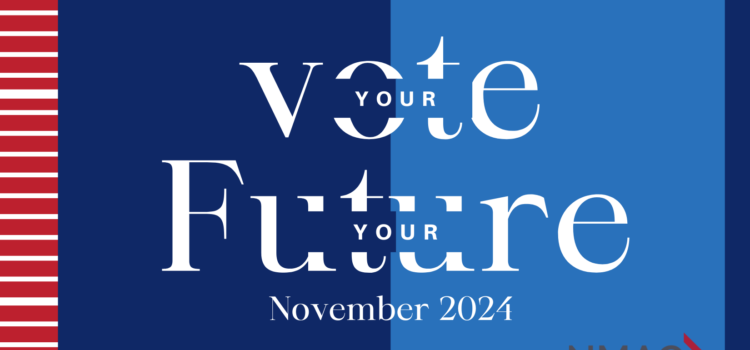


Congressional Briefing: Syndemic Approaches to Ending the HIV, Hepatitis, and STI Epidemics
Join an important briefing on the FY 2025 appropriations bills addressing federal funding for HIV, sexually transmitted infections (STIs), and hepatitis programs. During this briefing, panelists will discuss the importance of […]
Survivor Thriver Stories
A Journey of Growth: By Denise Drayton, Peer Educator and 50+ Scholar Living with HIV since ’93 has been a journey of growth. When I was diagnosed, I never imagined […]
Welcome to USCA 50+ Scholars for 2019 (Pt. 2)
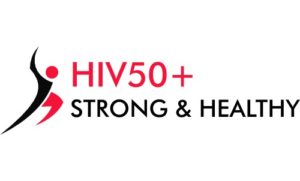 The HIV 50+ Strong and Healthy Program offers support and engagement opportunities for those HIV-positive and over the age of 50 who struggle with isolation and the need to overcome depression. The HIV 50+ program allows them to reinvent themselves and become active and productive individuals in the community. The program is composed of 51 individuals who either work with or are HIV positive and over the age of 50 years old. The program consists of educational webinars, mini-grant and internship opportunities, sponsorships to conferences and involvement at the United States Conference on AIDS (USCA).
The HIV 50+ Strong and Healthy Program offers support and engagement opportunities for those HIV-positive and over the age of 50 who struggle with isolation and the need to overcome depression. The HIV 50+ program allows them to reinvent themselves and become active and productive individuals in the community. The program is composed of 51 individuals who either work with or are HIV positive and over the age of 50 years old. The program consists of educational webinars, mini-grant and internship opportunities, sponsorships to conferences and involvement at the United States Conference on AIDS (USCA).
Congratulations to this year’s scholars! Since we have 51 Scholars, we will recognize them in two parts.
 Nancy Duncan is 61 years old and has been living and aging with HIV for 34 years now. She is very grateful to have made it through the difficult years before the anti-viral medications that came out in the mid-nineties because at that time, she didn’t think she was going to make it! She has been blessed to be able to see her son grow to up to become an amazing adult. She currently has some health issues but is thriving pretty well now and has been doing HIV testing and counseling and peer work for many years. Living with HIV has given her the chance to meet so many wonderful and inspiring people over the years and she looks forward to many more years of good health and happiness to come!
Nancy Duncan is 61 years old and has been living and aging with HIV for 34 years now. She is very grateful to have made it through the difficult years before the anti-viral medications that came out in the mid-nineties because at that time, she didn’t think she was going to make it! She has been blessed to be able to see her son grow to up to become an amazing adult. She currently has some health issues but is thriving pretty well now and has been doing HIV testing and counseling and peer work for many years. Living with HIV has given her the chance to meet so many wonderful and inspiring people over the years and she looks forward to many more years of good health and happiness to come!
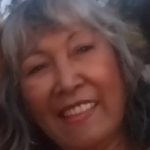 Nancy Shearer is a Filipina woman diagnosed with HIV in March 1997. Ever since she was diagnosed, she has dedicated herself to advocating for the rights of HIV+ individuals. She was also a grantee of a mini grant where she hosted a Social event for heterosexual men and women focusing on connecting with their peers facing the same challenges.
Nancy Shearer is a Filipina woman diagnosed with HIV in March 1997. Ever since she was diagnosed, she has dedicated herself to advocating for the rights of HIV+ individuals. She was also a grantee of a mini grant where she hosted a Social event for heterosexual men and women focusing on connecting with their peers facing the same challenges.
 Nikki Calma aka Tita Aida, is a familiar name to the Bay Area communities for the past twenty years. She is a tireless and proud transgender community leader in the Asian & Pacific islander LGBTQI community and the transgender community. She is currently the Director of HIV Services and Community Programs at San Francisco Community Health Center (formerly API Wellness).
Nikki Calma aka Tita Aida, is a familiar name to the Bay Area communities for the past twenty years. She is a tireless and proud transgender community leader in the Asian & Pacific islander LGBTQI community and the transgender community. She is currently the Director of HIV Services and Community Programs at San Francisco Community Health Center (formerly API Wellness).
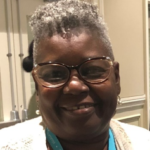 Patricia (Pat) Kelly is a native New Yorker who currently resides in Orangeburg, SC. She is aging gracefully and gratefully soon to be 65 years young and surviving and thriving 34 yrs. She was diagnosed with HIV in 1985 and AIDS in 1998. She is the mother of three, grandmother of eight and great grandmother of seven. Pat is also the founder of A Family Affair HIV and AIDS Ministry of Victory Tabernacle Deliverance Temple. She serves on several boards and is actively involved in the HIV arena locally and nationally.
Patricia (Pat) Kelly is a native New Yorker who currently resides in Orangeburg, SC. She is aging gracefully and gratefully soon to be 65 years young and surviving and thriving 34 yrs. She was diagnosed with HIV in 1985 and AIDS in 1998. She is the mother of three, grandmother of eight and great grandmother of seven. Pat is also the founder of A Family Affair HIV and AIDS Ministry of Victory Tabernacle Deliverance Temple. She serves on several boards and is actively involved in the HIV arena locally and nationally.
 Porchia Dees is from San Bernardino, CA. She currently serves in the Los Angeles area as a Prevention Specialist for an organization called AIDS Project Los Angeles. She was born HIV positive in 1986 and has been thriving with this condition for 32 years strong now. Helping others and giving back to her community is her passion. Public speaking and advocating for HIV/AIDS has become her calling, and has been working on trying to become better at speaking out, educating, and articulating her experience with the world.
Porchia Dees is from San Bernardino, CA. She currently serves in the Los Angeles area as a Prevention Specialist for an organization called AIDS Project Los Angeles. She was born HIV positive in 1986 and has been thriving with this condition for 32 years strong now. Helping others and giving back to her community is her passion. Public speaking and advocating for HIV/AIDS has become her calling, and has been working on trying to become better at speaking out, educating, and articulating her experience with the world.
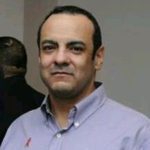 Randal Lucero has held the position of Board Member with several well-known national HIV organizations, where he has worked for over 12 years advocating for individuals and communities affected by HIV. Volunteerism has always been in the forefront of his professional experiences. As the founder of the New Mexico Aging and Long-Term Services HIV Advocacy Network and the State Consumer Representative to the NMDOH HIV Services Clinical Quality Management Committee he has made an extensive impact within the rural Southwest HIV community. Randal describes himself as a person living with HIV who strives to learn as much as possible and translate the knowledge into lay terms for others to understand the complexities of living with HIV.
Randal Lucero has held the position of Board Member with several well-known national HIV organizations, where he has worked for over 12 years advocating for individuals and communities affected by HIV. Volunteerism has always been in the forefront of his professional experiences. As the founder of the New Mexico Aging and Long-Term Services HIV Advocacy Network and the State Consumer Representative to the NMDOH HIV Services Clinical Quality Management Committee he has made an extensive impact within the rural Southwest HIV community. Randal describes himself as a person living with HIV who strives to learn as much as possible and translate the knowledge into lay terms for others to understand the complexities of living with HIV.
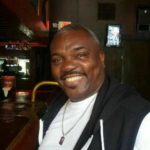 Reggie Dunbar II is the Founder and CEO of Poz Military Veterans USA Intl.
He served in the US Army Vietnam Era Veteran where he served in the JAG (legal) Core. He serves as the second vice chair of the Metropolitan Atlanta HIV Health Planning Services, a community advisory board member of Emory Clinical Trials and the Atlanta Legal Aid Society.
Reggie Dunbar II is the Founder and CEO of Poz Military Veterans USA Intl.
He served in the US Army Vietnam Era Veteran where he served in the JAG (legal) Core. He serves as the second vice chair of the Metropolitan Atlanta HIV Health Planning Services, a community advisory board member of Emory Clinical Trials and the Atlanta Legal Aid Society.
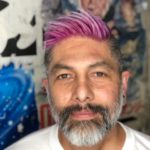 Rob Ingwerson lives in Beaverton, Oregon with his partner of 24 years. He currently is working at Cascade AIDS Project as an HIV Peer Support Specialist. Rob also does HIV testing for all at the main offices as well as testing in different community events. He is involved with AIDS Walk every year. Rob is very excited to attend this year’s USCA as a representative for the Aging HIV community.
Rob Ingwerson lives in Beaverton, Oregon with his partner of 24 years. He currently is working at Cascade AIDS Project as an HIV Peer Support Specialist. Rob also does HIV testing for all at the main offices as well as testing in different community events. He is involved with AIDS Walk every year. Rob is very excited to attend this year’s USCA as a representative for the Aging HIV community.
 Rob Cooke has been living in Washington, D.C. for 20 years, from the Norfolk VA area. He is thankful and blessed that he has been healthy undetectable for 21 years. He is presently apart of the Washington DC Regional Planning Commission on Health and HIV, working with the Community Engagement and Education Committee and the Community Advisory Board with Unity Health Clinics in the District. He is also actively involved with CNHED, Communities for Nonprofit Housing and Economic Development with “Housing For All” Campaign, LEDC, Latino Economic Development Center for Tenant Rights, and Manna Inc.(nonprofit housing assistance) board of directors.
Rob Cooke has been living in Washington, D.C. for 20 years, from the Norfolk VA area. He is thankful and blessed that he has been healthy undetectable for 21 years. He is presently apart of the Washington DC Regional Planning Commission on Health and HIV, working with the Community Engagement and Education Committee and the Community Advisory Board with Unity Health Clinics in the District. He is also actively involved with CNHED, Communities for Nonprofit Housing and Economic Development with “Housing For All” Campaign, LEDC, Latino Economic Development Center for Tenant Rights, and Manna Inc.(nonprofit housing assistance) board of directors.
 Robert Cornelius is the financial coordinator at Cempa Community Care, which provides primary and infectious disease care, mental health counseling, health maintenance, peer navigation and more for people living with and affected by HIV located in Chattanooga Tn. When not crunching numbers for the organization, he spends his time spreading awareness about the virus. Robert is currently working on programs for long-term survivors who are 50 and older, including planning for retirement—a milestone many in his community thought they might never reach. Over the past 20 years, his advocacy work has impacted the lives of people living with HIV from all walks of life and of all ages.
Robert Cornelius is the financial coordinator at Cempa Community Care, which provides primary and infectious disease care, mental health counseling, health maintenance, peer navigation and more for people living with and affected by HIV located in Chattanooga Tn. When not crunching numbers for the organization, he spends his time spreading awareness about the virus. Robert is currently working on programs for long-term survivors who are 50 and older, including planning for retirement—a milestone many in his community thought they might never reach. Over the past 20 years, his advocacy work has impacted the lives of people living with HIV from all walks of life and of all ages.
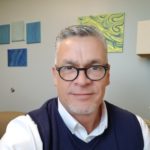 Rob Pompa, LCSW currently serves as Behavioral Health Specialist in a hospital based HIV clinic and is an advocate and activist for PLHIV. Rob currently serves on the Pennsylvania Special Pharmaceutical Benefits Program Advisory Council, the State of Pennsylvania HIV Divisions’ HIV Planning Group and as co-chair for assessment committee, the AIDSNET Coalition Regional MSM Prevention Planning Group, as well as a member of the Consumer Advisory Board for CDC’s Division of HIV Prevention Behavioral and Clinical Surveillance Branch Medical Monitoring Project. Rob is thrilled and grateful to be a member of the NMAC HIV 50+ Strong and Healthy cohort.
Rob Pompa, LCSW currently serves as Behavioral Health Specialist in a hospital based HIV clinic and is an advocate and activist for PLHIV. Rob currently serves on the Pennsylvania Special Pharmaceutical Benefits Program Advisory Council, the State of Pennsylvania HIV Divisions’ HIV Planning Group and as co-chair for assessment committee, the AIDSNET Coalition Regional MSM Prevention Planning Group, as well as a member of the Consumer Advisory Board for CDC’s Division of HIV Prevention Behavioral and Clinical Surveillance Branch Medical Monitoring Project. Rob is thrilled and grateful to be a member of the NMAC HIV 50+ Strong and Healthy cohort.
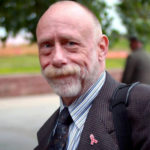 Robert Riester is a Denver native and 30+ year HIV long-term survivor, and HIV/AIDS Activist and Advocate, both locally and nationally, and pleased to be part of the NMAC 50+ Strong & Healthy program family. He is currently a Program Coordinator for the Denver Element at Mile High Behavioral Health Care, including the Positive Impact program with a focus on HIV and Aging and Ryan White services administration, and works collaboratively with other HIV/AIDS organizations. Robert is currently serving on his third term with the Denver HIV Resources Planning Council and first appointed term to the Denver Commission on Aging, bringing the voice of HIV & Aging to the table.
Robert Riester is a Denver native and 30+ year HIV long-term survivor, and HIV/AIDS Activist and Advocate, both locally and nationally, and pleased to be part of the NMAC 50+ Strong & Healthy program family. He is currently a Program Coordinator for the Denver Element at Mile High Behavioral Health Care, including the Positive Impact program with a focus on HIV and Aging and Ryan White services administration, and works collaboratively with other HIV/AIDS organizations. Robert is currently serving on his third term with the Denver HIV Resources Planning Council and first appointed term to the Denver Commission on Aging, bringing the voice of HIV & Aging to the table.
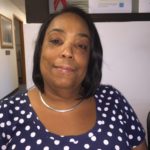 Shirl Kirskey was born and raised in the Washington, DC area. She is an Administrative Assistant by trade. She moved to Jacksonville, Florida over 30 years ago working at a local hospital for 14 years when she was diagnosed. She is 56 years old and has been positive for 25 years. She is a mother of three daughters.
Shirl Kirskey was born and raised in the Washington, DC area. She is an Administrative Assistant by trade. She moved to Jacksonville, Florida over 30 years ago working at a local hospital for 14 years when she was diagnosed. She is 56 years old and has been positive for 25 years. She is a mother of three daughters.
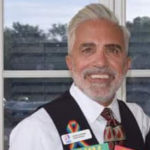 Stephen Addona is a long-term AIDS survivor, certified peer specialist and founder of RE-START, Central Florida’s largest HIV support group. The focal point of Stephen’s work is HIV and Aging. His primary goal is to set the standard in how to mature well while living with the virus. “It’s an art,” he says, “I sculpt both my body and mind daily, through use of my personal wellness plan. Exercise, nutrition, abstinence from tobacco and substance use, and continuously challenging the mind are critical in maintaining quality of life.”
Stephen Addona is a long-term AIDS survivor, certified peer specialist and founder of RE-START, Central Florida’s largest HIV support group. The focal point of Stephen’s work is HIV and Aging. His primary goal is to set the standard in how to mature well while living with the virus. “It’s an art,” he says, “I sculpt both my body and mind daily, through use of my personal wellness plan. Exercise, nutrition, abstinence from tobacco and substance use, and continuously challenging the mind are critical in maintaining quality of life.”
 Steven Vargas, Program Coordinator with AAMA (Association for the Advancement of Mexican Americans) began helping people living with HIV in 1989, has been living with HIV since 1995, and was recognized as one of Poz Magazine’s “100 Long Term Survivors” in its annual “Top 100” December 2015 issue. Steven is a board member of Houston’s OH Project which preserves the experiences of Houstonians impacted by HIV, and is serving a four year term as a Community Member representative to the U.S. Department of Health and Human Services Panel on Antiretroviral Guidelines for Adults and Adolescents. He has been the recipient of the 2016 L. Joel Martinez Memorial Award from Legacy Community Health and last year received the 2018 HIV Community Activist Award from Houston’s African American State of Emergency Task Force.
Steven Vargas, Program Coordinator with AAMA (Association for the Advancement of Mexican Americans) began helping people living with HIV in 1989, has been living with HIV since 1995, and was recognized as one of Poz Magazine’s “100 Long Term Survivors” in its annual “Top 100” December 2015 issue. Steven is a board member of Houston’s OH Project which preserves the experiences of Houstonians impacted by HIV, and is serving a four year term as a Community Member representative to the U.S. Department of Health and Human Services Panel on Antiretroviral Guidelines for Adults and Adolescents. He has been the recipient of the 2016 L. Joel Martinez Memorial Award from Legacy Community Health and last year received the 2018 HIV Community Activist Award from Houston’s African American State of Emergency Task Force.
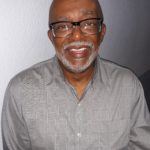 Sylvester Askins was diagnosed in June 1990 in Washington, DC. He currently lives in Portsmouth, VA and works as a Consultant. In this role he assists other persons living with HIV to re-enter the workforce and begin their journey to “Endependence.”
Sylvester Askins was diagnosed in June 1990 in Washington, DC. He currently lives in Portsmouth, VA and works as a Consultant. In this role he assists other persons living with HIV to re-enter the workforce and begin their journey to “Endependence.”
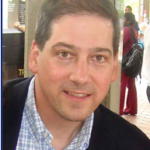 Thomas J. Villa is a member of and longtime advocate for the LGBT community, an accomplished leader and successful business executive. He has thirty years of success building and leading new teams and new businesses, primarily in healthcare and community engagement, most recently as co-founder of Impacto LGBT to serve the LGBT Latinx community of Northern Virginia. As a long-time survivor of HIV, Tom is a member of the Community Advisory Board to the BELIEVE HIV Cure Initiative, the NIH Precision Medicine InitiativeTM pilot group, and participates in various clinical trials focused on ending the HIV epidemic. Tom continues his lifelong participation in community service with a special focus on promoting health equity and civil rights.
Thomas J. Villa is a member of and longtime advocate for the LGBT community, an accomplished leader and successful business executive. He has thirty years of success building and leading new teams and new businesses, primarily in healthcare and community engagement, most recently as co-founder of Impacto LGBT to serve the LGBT Latinx community of Northern Virginia. As a long-time survivor of HIV, Tom is a member of the Community Advisory Board to the BELIEVE HIV Cure Initiative, the NIH Precision Medicine InitiativeTM pilot group, and participates in various clinical trials focused on ending the HIV epidemic. Tom continues his lifelong participation in community service with a special focus on promoting health equity and civil rights.
 Timothy Lunceford-Stevens has worked at the Gay Men’s Health Crisis (GMHC) in the Education Department in 1983 working on Prevention. He joined ACTUPNY in the founding year 1987. He is currently on a citywide LTS AIDS Service Planning Council, working to make sure LTS are not left alone in New York. With his SAGE membership, he worked last year to make sure the LTS nationwide were able to stay connected with Equality Bill.
Timothy Lunceford-Stevens has worked at the Gay Men’s Health Crisis (GMHC) in the Education Department in 1983 working on Prevention. He joined ACTUPNY in the founding year 1987. He is currently on a citywide LTS AIDS Service Planning Council, working to make sure LTS are not left alone in New York. With his SAGE membership, he worked last year to make sure the LTS nationwide were able to stay connected with Equality Bill.
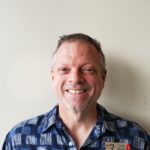 Todd Dickey is the HIV Services Manager at The Gay & Lesbian Center of Southern Nevada, a.k.a. The Center. He has been in the Las Vegas Valley since 1976 and has been HIV positive for 28 years. Living with HIV can be a challenge for most, adding in stigma and fear can often times add in a layer of complexity that can be overwhelming for some. He has the honor of connecting with people living with HIV on a daily basis and sharing with them his experience with HIV and letting them know that they are not alone.
Todd Dickey is the HIV Services Manager at The Gay & Lesbian Center of Southern Nevada, a.k.a. The Center. He has been in the Las Vegas Valley since 1976 and has been HIV positive for 28 years. Living with HIV can be a challenge for most, adding in stigma and fear can often times add in a layer of complexity that can be overwhelming for some. He has the honor of connecting with people living with HIV on a daily basis and sharing with them his experience with HIV and letting them know that they are not alone.
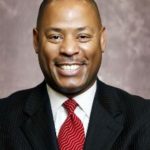 Mr. Trevor D. Bradley is 50 plus and has been in passionately involved in HIV prevention and education since 1998. He helped co-found Brothers United, an HIV prevention, education and advocacy agency in Indianapolis. Trevor became the first person to hold the position of HIV Prevention Program Manager for Communities of Color at the Indiana State Department of Health. He has been an MSM Advisory member for the CDC, lecturer, trainer and advocate for Communities of Color for over 20 years. Trevor is involved with several civic and non profit organizations, but has a fondness and place in his heart for real HIV prevention.
Mr. Trevor D. Bradley is 50 plus and has been in passionately involved in HIV prevention and education since 1998. He helped co-found Brothers United, an HIV prevention, education and advocacy agency in Indianapolis. Trevor became the first person to hold the position of HIV Prevention Program Manager for Communities of Color at the Indiana State Department of Health. He has been an MSM Advisory member for the CDC, lecturer, trainer and advocate for Communities of Color for over 20 years. Trevor is involved with several civic and non profit organizations, but has a fondness and place in his heart for real HIV prevention.
 William H. Chastang has been a HIV Consumer Advocate since Feb. 2005. He believes his quest will not end until there is a cure. He encourages all who have an HIV diagnosis to “Live in the moment” because we are not victims but survivors.
William H. Chastang has been a HIV Consumer Advocate since Feb. 2005. He believes his quest will not end until there is a cure. He encourages all who have an HIV diagnosis to “Live in the moment” because we are not victims but survivors.
 William Hall is a Tlingit Indian from Southeast Alaska and has been living with HIV/AIDS for 33 years. He is a community advocate for the Native American Community in Seattle. He is also co-chair of the Seattle Planning Council and has volunteered with defeatHIV, a CAB to Fred Hutch Cure Research for AIDS for five years now.
William Hall is a Tlingit Indian from Southeast Alaska and has been living with HIV/AIDS for 33 years. He is a community advocate for the Native American Community in Seattle. He is also co-chair of the Seattle Planning Council and has volunteered with defeatHIV, a CAB to Fred Hutch Cure Research for AIDS for five years now.
 Zeke Garcia is a community health worker and health educator risk reduction specialist. He regards himself as conduit of hope; a custodian of culture living the HIV + dream for the past 20 years. He is devoted to a life of healing, empowering and connecting.
Zeke Garcia is a community health worker and health educator risk reduction specialist. He regards himself as conduit of hope; a custodian of culture living the HIV + dream for the past 20 years. He is devoted to a life of healing, empowering and connecting.
 Nadine Ruff, MSW, is an LGBT activist and the founder of Divinely You, a support group for transgender people based in New Haven, CT. She works for APNH, a non-profit organization in New Haven, as the Program Coordinator of Aging Positively, an evidence-based intervention for people living with HIV who are age 50 and older. As a social worker, Nadine uses her clinical and community organizing to strengthen vulnerable communities.
Nadine Ruff, MSW, is an LGBT activist and the founder of Divinely You, a support group for transgender people based in New Haven, CT. She works for APNH, a non-profit organization in New Haven, as the Program Coordinator of Aging Positively, an evidence-based intervention for people living with HIV who are age 50 and older. As a social worker, Nadine uses her clinical and community organizing to strengthen vulnerable communities.
Culture @ USCA: What’s Happening In 2019
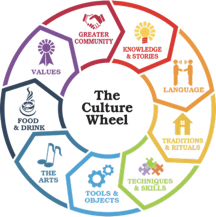 Culture provides a window into worlds that are different from your own. Through music, food, dance, fashion, and language, culture expresses value, emotion, and love. Understanding these values is important if we want to end the HIV epidemic because the culture of communities highly impacted by HIV are outside of the mainstream. If you don’t live in that community, you may not fully understand how to reach them. USCA gives you a window to understand communities that are different. Sometimes it challenges the way we think, sometimes it affirms our beliefs, but mostly it helps us better understand communities we need to reach to end the HIV epidemic. Mainstream HIV service models have reached the vast majority of people living with HIV, but to end HIV we must reach the 400,000 PLWH who have fallen out of care or are unaware of their HIV status.
Culture provides a window into worlds that are different from your own. Through music, food, dance, fashion, and language, culture expresses value, emotion, and love. Understanding these values is important if we want to end the HIV epidemic because the culture of communities highly impacted by HIV are outside of the mainstream. If you don’t live in that community, you may not fully understand how to reach them. USCA gives you a window to understand communities that are different. Sometimes it challenges the way we think, sometimes it affirms our beliefs, but mostly it helps us better understand communities we need to reach to end the HIV epidemic. Mainstream HIV service models have reached the vast majority of people living with HIV, but to end HIV we must reach the 400,000 PLWH who have fallen out of care or are unaware of their HIV status.
Far too often culture is minimized as superficial or unimportant. Why do I need to understand the culture and values of any community disproportionately impacted by HIV if all I want to do is retain people in healthcare and adherent to their meds? As we have learned in patient center care models, we must meet people where they live and work. Rather than asking them to adapt to our culture, we must adapt to theirs.
This year USCA is more intentional about its use of performance. While we want the music to move you, we also hope it will give you insights into communities that are outside of the mainstream but the target for our efforts.
Opening Plenary, Thursday, September 5th
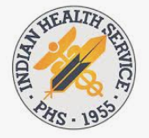 Thursday’s Opening Plenary and Sunday’s Closing Plenary will highlight the culture of the American Indian/Alaska Native Community. This presentation was put together as a gift for USCA from the Indian Health Service. NMAC thanks the IHS and Rick Haverkate. We cannot highlight every community at every plenary, so we ask for your understanding. Last year we highlighted Beyoncé going to Coachella and HBCUs.
Thursday’s Opening Plenary and Sunday’s Closing Plenary will highlight the culture of the American Indian/Alaska Native Community. This presentation was put together as a gift for USCA from the Indian Health Service. NMAC thanks the IHS and Rick Haverkate. We cannot highlight every community at every plenary, so we ask for your understanding. Last year we highlighted Beyoncé going to Coachella and HBCUs.
Saturday September 7th Plenary: A Celebration of People Living with HIV
Saturday’s Plenary is a celebration of people living with HIV and their central role in ending the epidemic. The science of U=U makes PLWH core to the solution. This plenary will only feature HIV positive performers. In addition to singing, we’ve asked these artists to explain how HIV impacts their art.
Branden and James
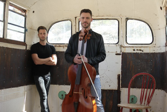 BRANDEN & JAMES, “a powerhouse cello and vocal duo.” Branden James’ voice inspired millions as a finalist on season 8 of America’s Got Talent. In the early part of 2015, James disclosed he was diagnosed HIV positive in his mid-20s. James stated: “I formed a major complex about what people would think of me. I kept it a deep dark secret to everyone except the trusted few.”
BRANDEN & JAMES, “a powerhouse cello and vocal duo.” Branden James’ voice inspired millions as a finalist on season 8 of America’s Got Talent. In the early part of 2015, James disclosed he was diagnosed HIV positive in his mid-20s. James stated: “I formed a major complex about what people would think of me. I kept it a deep dark secret to everyone except the trusted few.”
JADE ELEKTRA
 Originally from Tampa, Florida, Jade Elektra (African-American, Openly Gay HIV+ Drag Recording Artist, DJ, Actress & Activist) was a transplant to New York City in 1992 and then made Toronto her home in 2010 when she married John Richard Allan. In the world of entertainment, from performing on stage with Beyoncé to impersonating legends such as Billie Holiday live on stage, Ms. Elektra is not your average drag queen.
Originally from Tampa, Florida, Jade Elektra (African-American, Openly Gay HIV+ Drag Recording Artist, DJ, Actress & Activist) was a transplant to New York City in 1992 and then made Toronto her home in 2010 when she married John Richard Allan. In the world of entertainment, from performing on stage with Beyoncé to impersonating legends such as Billie Holiday live on stage, Ms. Elektra is not your average drag queen.
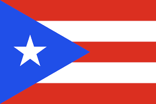 In addition to the closing ceremony provided by the American Indian/Alaska Native communities, we will also pass the torch to Puerto Rico for the 2020 USCA. We are still working with the San Juan host committee to figure out the best way to celebrate Puerto Rico and the Latinx community.USCA selected San Juan as the 2020 site in order to bring economic development back to the island. According to the local convention bureau, our meeting will provide jobs for over 1,000 people on the island. Additionally, going to San Juan gives the meeting the ability to highlight HIV in the Latinx and Caribbean communities. Attendees will have the experience of being in a city where English is the second language. If we are to end HIV, we need to make sure we reach all the communities highly impacted by HIV.Movie Night @ USCA
In addition to the closing ceremony provided by the American Indian/Alaska Native communities, we will also pass the torch to Puerto Rico for the 2020 USCA. We are still working with the San Juan host committee to figure out the best way to celebrate Puerto Rico and the Latinx community.USCA selected San Juan as the 2020 site in order to bring economic development back to the island. According to the local convention bureau, our meeting will provide jobs for over 1,000 people on the island. Additionally, going to San Juan gives the meeting the ability to highlight HIV in the Latinx and Caribbean communities. Attendees will have the experience of being in a city where English is the second language. If we are to end HIV, we need to make sure we reach all the communities highly impacted by HIV.Movie Night @ USCA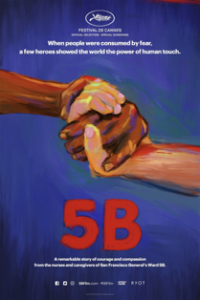 Friday, September 6th is movie night at USCA. This year we will show the acclaimed documentary “5B.” Thanks to the support of Janssen, USCA will present this important documentary. Joining us for a panel discussion after the film are my friends Cliff Morrison and Hank Trout.
Friday, September 6th is movie night at USCA. This year we will show the acclaimed documentary “5B.” Thanks to the support of Janssen, USCA will present this important documentary. Joining us for a panel discussion after the film are my friends Cliff Morrison and Hank Trout.
According to the Washington Post “The film flashes back to the mid-1970s, when San Francisco’s growing gay community — newly liberated in the post-Stonewall era — made it possible for men to walk down the street together holding hands. As one 5B survivor recalls, such public expressions of affection were a big deal. When the plague, as some referred to AIDS, first struck, it hurt that some professionals — caregivers, police, etc. — refused to touch people most in need of it.
The film reminds us that, in the early days of AIDS, doctors didn’t know whether the virus was airborne. Some media reports stoked public fears that an infected person could pass on a death sentence, just by breathing. The workers in 5B, unable to heal their patients, shifted their focus from cure to care, holding hands with and embracing people whose families, in many cases, had rejected them.”
While I have not seen the film, I’ve been asked to let people know that the documentary will trigger many feelings. There will be grief support people onsite during the showing. The film tells the story of the early San Francisco epidemic.
Master Lecture by Mykki Blanco
In addition to a more traditional Master Lecture to be given by Dr. Anthony Fauci, Mykki Blanco has just confirmed his participation. This is how I know that I am old: I had to look up his Wiki page to learn about him:
 Mykki Blanco began as a teenage girl character for a YouTube video in 2010, but evolved into a musical and performance art piece. Blanco’s name is inspired by Lil’ Kim’s alter ego Kimmy Blanco.
Mykki Blanco began as a teenage girl character for a YouTube video in 2010, but evolved into a musical and performance art piece. Blanco’s name is inspired by Lil’ Kim’s alter ego Kimmy Blanco.
In June 2015, Blanco revealed that he has been HIV positive since 2011. Blanco initially worried that being HIV positive would be detrimental to his career, saying of the decision to make finally that information public, “I did it for myself. At a certain point, my real life has to be more important than this career.”
He is also the star of Madonna’s video Dark Ballet.
Mykki will do a Master Lecture at USCA on “How HIV Influences his Art.”
Opening Reception
This year’s Opening Reception is put together by the Washington DC Host Committee. They have put together an exciting evening that includes an exhibition ball.
I’ve been told that USCA makes some people uncomfortable because they are attending a meeting that is not just about them. Imagine how planning council members or people living with HIV feel at your meetings. USCA highlights the various cultures of communities highly impacted by HIV because we will never end HIV if we don’t meet people where and how they live. Thank you for taking a risk and being uncomfortable.
Yours in the struggle,
Paul Kawata
30 Years of Service
Welcome to USCA 50+ Scholars for 2019 (Pt. 1)
 The HIV 50+ Strong and Healthy Program offers support and engagement opportunities for those HIV-positive and over the age of 50 who struggle with isolation and the need to overcome depression. The HIV 50+ program allows them to reinvent themselves and become active and productive individuals in the community. The program is composed of 51 individuals who either work with or are HIV positive and over the age of 50 years old. The program consists of educational webinars, mini-grant and internship opportunities, sponsorships to conferences and involvement at the United States Conference on AIDS (USCA).
The HIV 50+ Strong and Healthy Program offers support and engagement opportunities for those HIV-positive and over the age of 50 who struggle with isolation and the need to overcome depression. The HIV 50+ program allows them to reinvent themselves and become active and productive individuals in the community. The program is composed of 51 individuals who either work with or are HIV positive and over the age of 50 years old. The program consists of educational webinars, mini-grant and internship opportunities, sponsorships to conferences and involvement at the United States Conference on AIDS (USCA).
Congratulations to this year’s scholars! Since we have 51 Scholars, we will recognize them in two parts.
 Alexa Elizabeth Rodriguez is originally from Usulután, El Salvador. Her passion is defend Transgender and people living with HIV rights. She founded the first working and support group for people living with HIV and Trans Women, in her hometown “Mi Nueva Familia” (My New Family). Alexa has continue her work in the DMV (DC, Maryland and Virginia) with many organization including DC Health Department. She is the Director of the Trans-Latinx DMV a Two-Spirit led organization that centers the needs of Black & Indigenous Trans-Latinx people living in Washington DC, Maryland and Virginia, that function as regional Chapter of The National Trans-Latin@ Coalition. Alexa has been awarded with many recognitions. She has been an activist for 16 years fighting for the rights of the HIV positive and members of the transgender community. As a transgender and HIV positive individual, Alexa will continue to fight to make sure her community does not fail.
Alexa Elizabeth Rodriguez is originally from Usulután, El Salvador. Her passion is defend Transgender and people living with HIV rights. She founded the first working and support group for people living with HIV and Trans Women, in her hometown “Mi Nueva Familia” (My New Family). Alexa has continue her work in the DMV (DC, Maryland and Virginia) with many organization including DC Health Department. She is the Director of the Trans-Latinx DMV a Two-Spirit led organization that centers the needs of Black & Indigenous Trans-Latinx people living in Washington DC, Maryland and Virginia, that function as regional Chapter of The National Trans-Latin@ Coalition. Alexa has been awarded with many recognitions. She has been an activist for 16 years fighting for the rights of the HIV positive and members of the transgender community. As a transgender and HIV positive individual, Alexa will continue to fight to make sure her community does not fail.
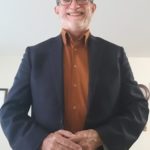 Angel Luis Hernandez was born and lives in Puerto Rico. Diagnosed with AIDS in 2003, with a poor prognosis, it took him 6 years to “get out of the closet” of HIV. Since 2010, Angel has been involved as a community representative in various local, national and international boards and organizations. As advocate, he believes there is still a need for education around HIV, and still much more work to do to address the social determinants of health of persons living with HIV and AIDS. A key element of Angel’s advocacy work is to empower and support persons living with HIV and AIDS. As HIV Community Educator, he has received scholarships to attend various national and international conferences. Angel helps members of the general community understand the science of HIV and AIDS to ensure community concerns are considered.
Angel Luis Hernandez was born and lives in Puerto Rico. Diagnosed with AIDS in 2003, with a poor prognosis, it took him 6 years to “get out of the closet” of HIV. Since 2010, Angel has been involved as a community representative in various local, national and international boards and organizations. As advocate, he believes there is still a need for education around HIV, and still much more work to do to address the social determinants of health of persons living with HIV and AIDS. A key element of Angel’s advocacy work is to empower and support persons living with HIV and AIDS. As HIV Community Educator, he has received scholarships to attend various national and international conferences. Angel helps members of the general community understand the science of HIV and AIDS to ensure community concerns are considered.
 Angelica Gallegos, Case Management Supervisor, has been employed with Access and Information Network (AIN) in Dallas, TX since 2017. She has her master’s in social work from Texas A&M Commerce and a Bachelor’s in Social Work from Texas Woman’s University. She is currently on the Dallas HIV Task Force and the Latinx Task Force Work Group. Angelica has worked in the social work field for 6+ years, advocating for service, justice and the dignity and worth of each individual.
Angelica Gallegos, Case Management Supervisor, has been employed with Access and Information Network (AIN) in Dallas, TX since 2017. She has her master’s in social work from Texas A&M Commerce and a Bachelor’s in Social Work from Texas Woman’s University. She is currently on the Dallas HIV Task Force and the Latinx Task Force Work Group. Angelica has worked in the social work field for 6+ years, advocating for service, justice and the dignity and worth of each individual.
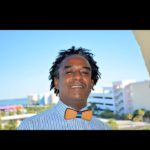 Arthur Jackson is a respected and innovative national community educator of HIV Prevention, Education and Care Services, in Indianapolis, Indiana, working as the Linkage to Care Coordinator for BU Wellness Network. Born and raised in Orange, New Jersey, Art graduated from Orange High School in 1983 and attended Penn State University. Moving to Harlem, New York, Art has witnessed the evolution of HIV/AIDS from its inception to how we are currently living and dealing with this virus today. Since being diagnosed in January 1989 Art has tried to be an avid and dedicated fighter for those living with this disease.
Arthur Jackson is a respected and innovative national community educator of HIV Prevention, Education and Care Services, in Indianapolis, Indiana, working as the Linkage to Care Coordinator for BU Wellness Network. Born and raised in Orange, New Jersey, Art graduated from Orange High School in 1983 and attended Penn State University. Moving to Harlem, New York, Art has witnessed the evolution of HIV/AIDS from its inception to how we are currently living and dealing with this virus today. Since being diagnosed in January 1989 Art has tried to be an avid and dedicated fighter for those living with this disease.
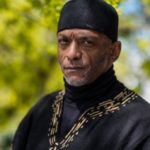 Bryan Jones has been thriving with AIDS for 35 years an advocating half that time . He is a Founding Steering Committee Memeber of U=U and has spoken internationally on U= U. He performs a one man theatrical conversation entitled A.I.D S….- And I Die Slowly throughout the U.S and abroad. He us the proud recipient of the Equitas Health Trailblazer Award for lifelong committment to the LGBTQ community and HIV. Bryan was chosen this year by the Body .Com as one of their Game Changers in HIV Advocacy. Mr. Jones is the Founder of the Dirt Advocacy Movement And has been working on Modernizing HIV criminalization laws for several years.
Bryan Jones has been thriving with AIDS for 35 years an advocating half that time . He is a Founding Steering Committee Memeber of U=U and has spoken internationally on U= U. He performs a one man theatrical conversation entitled A.I.D S….- And I Die Slowly throughout the U.S and abroad. He us the proud recipient of the Equitas Health Trailblazer Award for lifelong committment to the LGBTQ community and HIV. Bryan was chosen this year by the Body .Com as one of their Game Changers in HIV Advocacy. Mr. Jones is the Founder of the Dirt Advocacy Movement And has been working on Modernizing HIV criminalization laws for several years.
 Carlos Carmona is an HIV long-term survivor of 29 years and an activist and advocate for people living with HIV (PLWH) for over 15 years. He currently resides in San Antonio, Tx and continues to be a voice for the HIV community breaking down stigma and bringing awareness about HIV.
Carlos Carmona is an HIV long-term survivor of 29 years and an activist and advocate for people living with HIV (PLWH) for over 15 years. He currently resides in San Antonio, Tx and continues to be a voice for the HIV community breaking down stigma and bringing awareness about HIV.
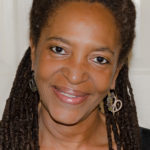 Cecilia Dennis is currently located in Phoenix, AZ is a Building Leaders of Color Trainer of Trainers, PWN-USA AZ State Lead, and serves on Maricopa Integrated Health System Community Advisory Board. Currently, Cecilia provides effective risk reduction education in group and one-on-one settings, along with public speaking. She also hosts community events, disseminates materials, and conducts HIV/STI testing.
Cecilia Dennis is currently located in Phoenix, AZ is a Building Leaders of Color Trainer of Trainers, PWN-USA AZ State Lead, and serves on Maricopa Integrated Health System Community Advisory Board. Currently, Cecilia provides effective risk reduction education in group and one-on-one settings, along with public speaking. She also hosts community events, disseminates materials, and conducts HIV/STI testing.
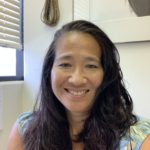 Christine Kapiioho is a Native Hawaiian and Okinawan. She lives on the island of Maui and in September 2019 she will have worked for Maui AIDS Foundation for 10 years. She started as a case manager with 50 clients and in 2012 became Director of Client Services and works with two caring, competent medical case managers for 150+ clients. She is honored to be selected as a scholarship recipient and hopes to continue to bring innovative information to her clients, especially her 50+ year old clients on the islands of Maui, Molokai and Lanai.
Christine Kapiioho is a Native Hawaiian and Okinawan. She lives on the island of Maui and in September 2019 she will have worked for Maui AIDS Foundation for 10 years. She started as a case manager with 50 clients and in 2012 became Director of Client Services and works with two caring, competent medical case managers for 150+ clients. She is honored to be selected as a scholarship recipient and hopes to continue to bring innovative information to her clients, especially her 50+ year old clients on the islands of Maui, Molokai and Lanai.
 David “Jax” Kelly is the president of Let’s Kick A.S.S. (AIDS Survivor Syndrome) – Palm Springs Chapter (LKAPS.org). He has been thriving with AIDS since 2006. He is a member of Cleveland AIDS Clinical Trials Unit Community Advisory Board.
David “Jax” Kelly is the president of Let’s Kick A.S.S. (AIDS Survivor Syndrome) – Palm Springs Chapter (LKAPS.org). He has been thriving with AIDS since 2006. He is a member of Cleveland AIDS Clinical Trials Unit Community Advisory Board.
 Dawn Breedon is an HIV positive motivational speaker, Certified Life Coach, activist, and author of REMEMBER TO BREATHE. Dawn continues to educate herself to help others pull through adverse situations. She graduated with honors from Lincoln University in Pennsylvania with a Masters of HumanServices Degree, where she was inducted into the Pi Gamma Mu International Honor Society for Social Sciences. Dawn holds a certificate in Evidenced Based Coaching from Fielding Graduate University.
Dawn Breedon is an HIV positive motivational speaker, Certified Life Coach, activist, and author of REMEMBER TO BREATHE. Dawn continues to educate herself to help others pull through adverse situations. She graduated with honors from Lincoln University in Pennsylvania with a Masters of HumanServices Degree, where she was inducted into the Pi Gamma Mu International Honor Society for Social Sciences. Dawn holds a certificate in Evidenced Based Coaching from Fielding Graduate University.
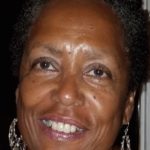 Denise Drayton is a 68-year-old Mother of Christal and George, Grandmother to Kevin and Cameron. She tested HIV positive on September 1993. She is the community Liaison for ACRIA Centers on Aging at GMHC. She is dedicated to providing HIV prevention education to those at risk for HIV. She is also a Faithful servant of Healing Touch HIV Ministry at Emmanuel Baptist Church.
Denise Drayton is a 68-year-old Mother of Christal and George, Grandmother to Kevin and Cameron. She tested HIV positive on September 1993. She is the community Liaison for ACRIA Centers on Aging at GMHC. She is dedicated to providing HIV prevention education to those at risk for HIV. She is also a Faithful servant of Healing Touch HIV Ministry at Emmanuel Baptist Church.
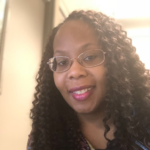 Diana Goodie is currently employed as a Medical Case Manager/ Ryan White Eligibility Specialist at East Carolina University Adult Specialty Care. Diana has been actively involved in working with PLWH for more than 18 years and has developed a passion for serving the aging population as evidenced by her advocacy & supportive efforts. She has become a Certified Dementia Practitioner and is currently pursuing certification in Gerontology. Diana is committed to empower, educate and reduce barriers that effect PLWH in Eastern North Carolina.
Diana Goodie is currently employed as a Medical Case Manager/ Ryan White Eligibility Specialist at East Carolina University Adult Specialty Care. Diana has been actively involved in working with PLWH for more than 18 years and has developed a passion for serving the aging population as evidenced by her advocacy & supportive efforts. She has become a Certified Dementia Practitioner and is currently pursuing certification in Gerontology. Diana is committed to empower, educate and reduce barriers that effect PLWH in Eastern North Carolina.
 Emilio Apontesierra-Paretti is an asylee from Colombia with a masters degree in Education in Guidance Counseling. He focuses his work in Public Health as a Certify Community Health Worker, particularly the issues of HIV/AIDS Prevention and Care. Aponte was the Chair of both, Latinx and MSM Advisors Groups of the Broward County HIV Prevention Planning Council until he leave Florida Department of Health in Broward in January of 2019. Currently is the Behavioral Health Interventions Supervisor of High Impacto, Inc. Aponte also is an artist that use his art as a tool of community mobilization towards awareness, education and actions for HIV/AIDS prevention.
Emilio Apontesierra-Paretti is an asylee from Colombia with a masters degree in Education in Guidance Counseling. He focuses his work in Public Health as a Certify Community Health Worker, particularly the issues of HIV/AIDS Prevention and Care. Aponte was the Chair of both, Latinx and MSM Advisors Groups of the Broward County HIV Prevention Planning Council until he leave Florida Department of Health in Broward in January of 2019. Currently is the Behavioral Health Interventions Supervisor of High Impacto, Inc. Aponte also is an artist that use his art as a tool of community mobilization towards awareness, education and actions for HIV/AIDS prevention.
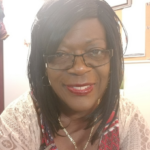 Esther Sarteh Ross-Hines works as the Associate Program Manager/Region 10 Network Coordinator at East Carolina University Adult Specialty Care Clinic in Greenville, NC. She helped mobilize 1st ever advocacy team in Eastern North Carolina dubbed “WE Team of the East, Girls on Fire,” women empowerment group tasked with advocating and leveraging policies to help POCLWH achieve and sustain the highest quality of care. Esther is now in her 26th year of surviving, striving and thriving with HIV, living the golden life at the age of 58. Esther as the graduate of NMAC, Building Leaders of Color; HIV 50+ Strong & Healthy Scholar and GLOW (Growing Leadership Opportunities for Women) implemented a project called “LAMPS” (Leaders, Advocating, Mentoring Personal growth & Support) that provided education, using BLOC Curriculum, to empower POCLWH 50+ to mentor other peers become meaningfully involve within service delivery systems and infrastructures that impact POCLWH in Eastern North Carolina.
Esther Sarteh Ross-Hines works as the Associate Program Manager/Region 10 Network Coordinator at East Carolina University Adult Specialty Care Clinic in Greenville, NC. She helped mobilize 1st ever advocacy team in Eastern North Carolina dubbed “WE Team of the East, Girls on Fire,” women empowerment group tasked with advocating and leveraging policies to help POCLWH achieve and sustain the highest quality of care. Esther is now in her 26th year of surviving, striving and thriving with HIV, living the golden life at the age of 58. Esther as the graduate of NMAC, Building Leaders of Color; HIV 50+ Strong & Healthy Scholar and GLOW (Growing Leadership Opportunities for Women) implemented a project called “LAMPS” (Leaders, Advocating, Mentoring Personal growth & Support) that provided education, using BLOC Curriculum, to empower POCLWH 50+ to mentor other peers become meaningfully involve within service delivery systems and infrastructures that impact POCLWH in Eastern North Carolina.
 Franceina Hopkins is a Public Speaker, Outreach Specialist, Advocate, Recruiter, Linkage to Care Specialist, Trainer and a Leader. She was born in a rural area in Hampton County but currently lives in Lexington, SC, also rural. When she came to Columbia, SC, she was introduced to the organization, Women Helping Women, a group linked through LRADAC (Lexington Richland Alcohol Drug Abuse Council). Franceina is a Lead Recruiter for WISE Women (Women in Support of Empowerment) at PALSS (Palmetto AIDS Life Support Services).
Franceina Hopkins is a Public Speaker, Outreach Specialist, Advocate, Recruiter, Linkage to Care Specialist, Trainer and a Leader. She was born in a rural area in Hampton County but currently lives in Lexington, SC, also rural. When she came to Columbia, SC, she was introduced to the organization, Women Helping Women, a group linked through LRADAC (Lexington Richland Alcohol Drug Abuse Council). Franceina is a Lead Recruiter for WISE Women (Women in Support of Empowerment) at PALSS (Palmetto AIDS Life Support Services).
 Janice Shirley is a Certified Peer Support Specialist for the state of North Carolina and an advance Level Facilitator. Her goals are to continue to work with her brother and sister in this field to ensure they have the necessary information to live and have a comfortable life. She is working toward getting rid of STIGMA in the HIV arena.
Janice Shirley is a Certified Peer Support Specialist for the state of North Carolina and an advance Level Facilitator. Her goals are to continue to work with her brother and sister in this field to ensure they have the necessary information to live and have a comfortable life. She is working toward getting rid of STIGMA in the HIV arena.
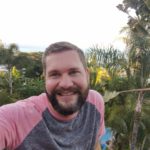 Jared Hafen joined the Utah AIDS Foundation as Case Manager in 2014, and became Director of Programming in 2016. Jared has a master’s in social work from University of Nevada, Las Vegas, and has worked in the field of HIV for more than 15 years, beginning as a volunteer in HIV prevention and education at Western Colorado AIDS Project. In addition to his duties as Programming Director, Jared facilitates a weekly men’s HIV support group, and puts great value in connecting with participants and educating and empowering people living with HIV through the simple acts of respect, compassion, and commitment to serve.
Jared Hafen joined the Utah AIDS Foundation as Case Manager in 2014, and became Director of Programming in 2016. Jared has a master’s in social work from University of Nevada, Las Vegas, and has worked in the field of HIV for more than 15 years, beginning as a volunteer in HIV prevention and education at Western Colorado AIDS Project. In addition to his duties as Programming Director, Jared facilitates a weekly men’s HIV support group, and puts great value in connecting with participants and educating and empowering people living with HIV through the simple acts of respect, compassion, and commitment to serve.
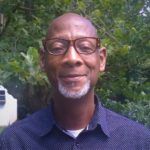 Jeffery Edwards-Knight is a 56-year-old gay, Black male who has lived with HIV for 33 years. He resides in Charlotte, NC where he has lived for 34 years. He works at the Mecklenburg County Health Department where he supervises the HIV/STD community testing and outreach team.
Jeffery Edwards-Knight is a 56-year-old gay, Black male who has lived with HIV for 33 years. He resides in Charlotte, NC where he has lived for 34 years. He works at the Mecklenburg County Health Department where he supervises the HIV/STD community testing and outreach team.
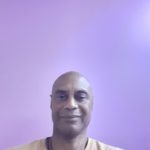 Jeffery A. Haskins is a graduate of Howard and Columbia University. He has held many positions in government, non-profits, and business. He currently works as the Project TEACH Lead Coordinator at Philadelphia FIGHT Community Health Centers. Reverend Haskins is the Pastor of Unity Fellowship of Christ Church Philadelphia. He was a Recovery Counselor for COMHAR (Community Mental Health, Addiction and Rehabilitation). Jeffery is also the Producing Director of PAPA (Producing Association of the Performing Arts) where he has written and starred in his one man show entitled the 26 Project about the number of friends and family members we have lost to the AIDS epidemic. He is a founding member of the New York State, Black Gay Men’s and Health and Human Services Networks.
Jeffery A. Haskins is a graduate of Howard and Columbia University. He has held many positions in government, non-profits, and business. He currently works as the Project TEACH Lead Coordinator at Philadelphia FIGHT Community Health Centers. Reverend Haskins is the Pastor of Unity Fellowship of Christ Church Philadelphia. He was a Recovery Counselor for COMHAR (Community Mental Health, Addiction and Rehabilitation). Jeffery is also the Producing Director of PAPA (Producing Association of the Performing Arts) where he has written and starred in his one man show entitled the 26 Project about the number of friends and family members we have lost to the AIDS epidemic. He is a founding member of the New York State, Black Gay Men’s and Health and Human Services Networks.
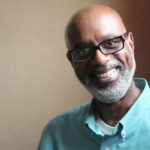 Joel Caudle knows firsthand the importance of finding support soon after a positive diagnosis. He first connected with Nashville CARES as a client in 2003 after learning he had HIV. He now works as a Medical Case Manager Associate for My House, an offsite health and wellness center operated by Nashville CARES, in conjunction with the organizations Neighborhood Health and Streetworks. As a member of the My House team, Joel offers tailored information and services to same-gender-loving men of color, including STI testing, Pre-exposure prophylaxis (PrEP), treatment adherence skills and status disclosure support. Of his work, Joel says, “I use every day that I come to work as an opportunity to empower people with the will to live.”
Joel Caudle knows firsthand the importance of finding support soon after a positive diagnosis. He first connected with Nashville CARES as a client in 2003 after learning he had HIV. He now works as a Medical Case Manager Associate for My House, an offsite health and wellness center operated by Nashville CARES, in conjunction with the organizations Neighborhood Health and Streetworks. As a member of the My House team, Joel offers tailored information and services to same-gender-loving men of color, including STI testing, Pre-exposure prophylaxis (PrEP), treatment adherence skills and status disclosure support. Of his work, Joel says, “I use every day that I come to work as an opportunity to empower people with the will to live.”
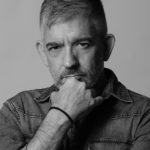 Joey Pons was diagnosed in 1987 and has been an activist of people living with HIV since then. He began his involvement in New York City with ACT-UP (AIDS Coalition to Unleash Power). He is a Project Manager in Policy, Strategic Planning and Community Engagement. In his extensive involvement in the field of HIV advocacy, Mr. Pons has participated in countless conferences as a lecturer on Human Rights, HIV/AIDS and Community Organizing. Additionally, he has distinguished himself as a respected lobbyist in matters of human rights and HIV.
Joey Pons was diagnosed in 1987 and has been an activist of people living with HIV since then. He began his involvement in New York City with ACT-UP (AIDS Coalition to Unleash Power). He is a Project Manager in Policy, Strategic Planning and Community Engagement. In his extensive involvement in the field of HIV advocacy, Mr. Pons has participated in countless conferences as a lecturer on Human Rights, HIV/AIDS and Community Organizing. Additionally, he has distinguished himself as a respected lobbyist in matters of human rights and HIV.
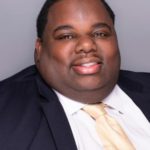 Kenneth Johnson is currently a Program Manager at Abounding Prosperity, Inc. He has been working in the field of HIV prevention and care for over 14 years. He also enjoys his role at AP Inc. and, working with his community. As apart of his role he manages an array of projects inclusive of working with the 50+ population living strong with HIV.
Kenneth Johnson is currently a Program Manager at Abounding Prosperity, Inc. He has been working in the field of HIV prevention and care for over 14 years. He also enjoys his role at AP Inc. and, working with his community. As apart of his role he manages an array of projects inclusive of working with the 50+ population living strong with HIV.
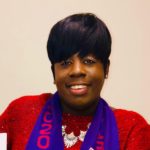 Kneeshe Parkinson is a Saint Louis native. She is a recent graduate with a bachelor’s in liberal studies with emphasis on sociology, psychology and gender studies from the University of Missouri Saint Louis. She is proud of the recent opportunity to be working with Empower Missouri were she is a graduate of the policy fellowship with Positive Women’s Network-USA (PWN) a program training and preparing participants to be effective advocates for policy change. In addition to being a PWN policy fellow, she is the PWN State Lead for Missouri.
Kneeshe Parkinson is a Saint Louis native. She is a recent graduate with a bachelor’s in liberal studies with emphasis on sociology, psychology and gender studies from the University of Missouri Saint Louis. She is proud of the recent opportunity to be working with Empower Missouri were she is a graduate of the policy fellowship with Positive Women’s Network-USA (PWN) a program training and preparing participants to be effective advocates for policy change. In addition to being a PWN policy fellow, she is the PWN State Lead for Missouri.
 Since 1997, Michael Smith has worked on two different programs concurrently: a cutting-edge program assisting People Living with HIV/AIDS (PLWAs) addressing a variety of work, school, financial topics and concerns called The Phoenix Rising HIV/AIDS Re-entry Project (www.phoenixrisingreentry.org) and is a consultant at The Santa Fe Community Housing Trust’s HOPWA Homebuyer project, a unique program assisting PLWAs to stabilize their finances and obtain homeownership.
Since 1997, Michael Smith has worked on two different programs concurrently: a cutting-edge program assisting People Living with HIV/AIDS (PLWAs) addressing a variety of work, school, financial topics and concerns called The Phoenix Rising HIV/AIDS Re-entry Project (www.phoenixrisingreentry.org) and is a consultant at The Santa Fe Community Housing Trust’s HOPWA Homebuyer project, a unique program assisting PLWAs to stabilize their finances and obtain homeownership.
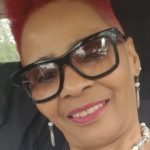 Michele Princeton has worked for the AIDS Taskforce of Greater Cleveland since 2006; her background includes Housing Case Management, Prevention Education, and Program Management. She has been repeatedly recognized for excellence in leading program development, service implementation, advocacy, and supportive counseling. She has served populations presenting a range of psychological disorders as well as emotional, behavioral, substance abuse and developmental challenges.
Michele Princeton has worked for the AIDS Taskforce of Greater Cleveland since 2006; her background includes Housing Case Management, Prevention Education, and Program Management. She has been repeatedly recognized for excellence in leading program development, service implementation, advocacy, and supportive counseling. She has served populations presenting a range of psychological disorders as well as emotional, behavioral, substance abuse and developmental challenges.
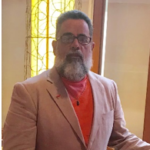 Miguel Ángel Delgado Ramos Lives in Cidra, Puerto Rico the town of eternal spring. He has a Bachelor of Business Administration from the University of the Sacred Heart in Santurce, PR. Is Co-Founder of the Association of Small Farmers of Rabanal, Inc. He has received medical services at COSSMA, Inc., a community health center since 2003 and joined his Board of Directors in 2014. In September 2018 he was awarded an scholarship by NMAC to participate in the HIV 50+ Strong and Healthy Program. Funded by NMAC and in collaboration with COSSMA, INC., and NeoMed Clínic, INC., develop the “VIHVIENDO Fuerte y Saludable” program aimed at HIV positive people over 50.
Miguel Ángel Delgado Ramos Lives in Cidra, Puerto Rico the town of eternal spring. He has a Bachelor of Business Administration from the University of the Sacred Heart in Santurce, PR. Is Co-Founder of the Association of Small Farmers of Rabanal, Inc. He has received medical services at COSSMA, Inc., a community health center since 2003 and joined his Board of Directors in 2014. In September 2018 he was awarded an scholarship by NMAC to participate in the HIV 50+ Strong and Healthy Program. Funded by NMAC and in collaboration with COSSMA, INC., and NeoMed Clínic, INC., develop the “VIHVIENDO Fuerte y Saludable” program aimed at HIV positive people over 50.
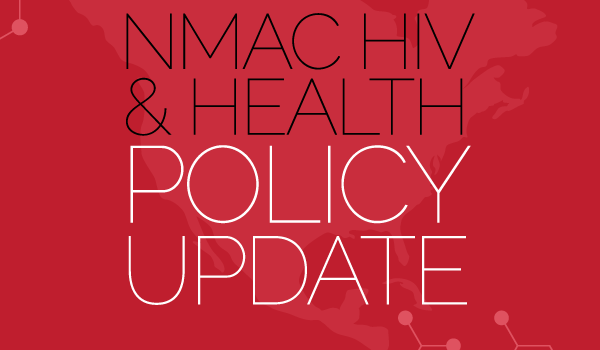
Important Happenings in HIV/Health Policy 6/14/19
House Oversight Committee to Hold Hearing on Gilead’s Exorbitant Price for HIV Prevention Drug – On Thursday, May 16, 2019, at 10:00 a.m., the Committee on Oversight and Reform will hold a hearing on “HIV Prevention Drug: Billions in Corporate Profits after Millions in Taxpayer Investments.”
Being an HIV 50+ Scholar at USCA 2018
By Christine Kapi’ioho
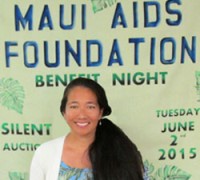 This was my first time attending USCA and I was absolutely honored and privileged to attend. Coming all the way from Maui, Hawaii and being part Native-Hawaiian and a woman, I learned that there was now a designation for our race under the Constituent Advisory Panels (CAPs) for 2018. We, as Hawaiians are no longer lumped into another category but instead have our own panel which is amazing. Now, there are five CAPs; African American, American Indian and Alaskan Native, Asian, Latinx, and Native Hawaiian and Pacific Islander. I was able to attend the breakout session on the first day, entitled: Ka Hikina o Ka La – The Dawning of a New Day and luckily it did not conflict with any of my HIV50+ Scholar sessions that were recommended to attend. The session was so informative and was presented by my colleagues throughout the State of Hawaii. I felt that as a Scholar being at the conference was a chance to show that Hawaiians are still around on this planet, that our voices should be heard, and that our Native Hawaiian HIV-positive individuals should be recognized. I thought of my clients whom I serve where I work and how it would be so special to have other Hawaiians attend in 2019. I dreamed of how beneficial it would be to them mentally and to show them they are not alone and that other minorities are not isolating themselves or being ashamed of their status.
This was my first time attending USCA and I was absolutely honored and privileged to attend. Coming all the way from Maui, Hawaii and being part Native-Hawaiian and a woman, I learned that there was now a designation for our race under the Constituent Advisory Panels (CAPs) for 2018. We, as Hawaiians are no longer lumped into another category but instead have our own panel which is amazing. Now, there are five CAPs; African American, American Indian and Alaskan Native, Asian, Latinx, and Native Hawaiian and Pacific Islander. I was able to attend the breakout session on the first day, entitled: Ka Hikina o Ka La – The Dawning of a New Day and luckily it did not conflict with any of my HIV50+ Scholar sessions that were recommended to attend. The session was so informative and was presented by my colleagues throughout the State of Hawaii. I felt that as a Scholar being at the conference was a chance to show that Hawaiians are still around on this planet, that our voices should be heard, and that our Native Hawaiian HIV-positive individuals should be recognized. I thought of my clients whom I serve where I work and how it would be so special to have other Hawaiians attend in 2019. I dreamed of how beneficial it would be to them mentally and to show them they are not alone and that other minorities are not isolating themselves or being ashamed of their status.
I am inspired by all the knowledge and information at the conference. Sometimes I was a little overwhelmed by it all but at the same time going, the fire inside being re-kindled and ignited to a brighter flame so that I can continue the work that I do as Director of Client Services. I come back to my agency, ready to start a stand-alone 50+ HIV positive group to serve those aging with HIV and address their specific, “aging” needs. I also come back to the office ready to do what it takes to bring other Native Hawaiian peoples to the conference in 2019. Thank you NMAC and USCA for allowing me the chance to attend USCA. I plan to bring others in 2019.
With Aloha,
Christine Kapi’ioho
Constituent Spotlight: Edward Jackson
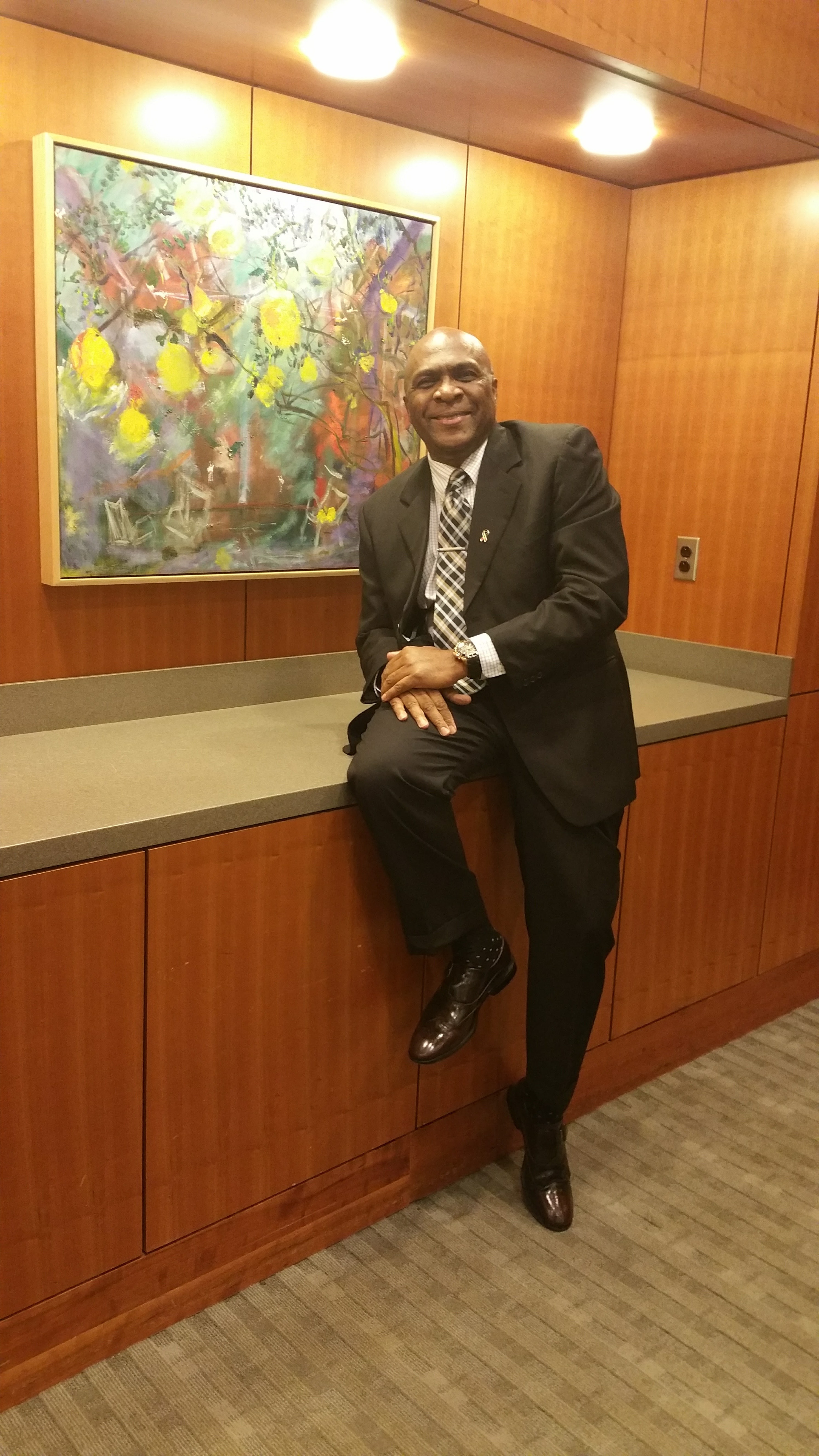
HIV, aging, and leadership, have characterized my life in differentways for three decades. Each has impacted how I define my life in various ways. As a person aging with HIV, thriving with the virus began as a complication but now, with time and wisdom, has been reduced to an endearing contradiction.
Thriving with HIV 20 or 30 years ago was like aging prematurely with the physical frailty, awareness of my mortality, and the common fact of life for the elderly: the frequent death of friends.
The constant funerals and memorials always left me fearing my imminent and premature death. I was uncertain that even death might not ensure relief as I remember when funeral homes would not bury dead friends or when I met relatives of the dead who had shunned their children. Death was often defined by pain, shame, confusion, and isolation.
Unconsciously, I became stronger by will, tougher by faith, and more calculated and determined as I learned to navigate biased providers, economic trap doors, and impossible social service systems. I became a professional student, without designing a strategy towards that end. Again, without a deliberate plan, I received training to write more effectively, support to deliver messages to our communities more effectively, and develop my voice, that is now heard on boards and advisory bodies and in individual settings.
Somehow, this plague of a virus, this bullseye of stigma and shame, became the springboard for my role as a leader. As I fought for my life and for my strength through the early years, I now apply lessons learned to fight disparities in our communities. I am part of a community of advocates and peer educators who, through many varied routes, have distinguished ourselves by thriving not simply surviving.
My initiative is my own, but my capacity in this field comes from countless trainers, providers, and associates. My wisdom is my own but my developed influence in the HIV primary care world has been born of compassion, empathy, and experience as a caregiver for the weak and dying. My authority comes from what I owe them, myself, and those I will meet tomorrow.
I embody a global movement that has evolved into a worldwide model of chronic care and peer support. We have defined an epidemic. It has not defined me (us).
I practice self-care. I initiate and value partnerships on local, state, national and global levels. I consult with academic, clinical, faith-based, and healthcare systems to disseminate in ever-changing, innovative venues. I draw from my lessons learned as a Gay, African-American man in America. Every assault every fear and aggression I have experienced has transformed into the powerful foundation that frames my advocacy to be the change I seek.
My leadership is valued in the HIV and chronic care world and comes from working with marginalized individuals, People of Color, and LGBTQ communities. The challenges of HIV & Aging still represent an enormous gift and paradox. This gift defines my commitment to this life-giving, life-changing vision to the reduce stigma, provide education, and end HIV in our lives.
Statement from HIV, STD & Hepatitis Policy Partnership on Meeting with CDC Director Robert Redfield
Statement from HIV, STD & Hepatitis Policy Partnership on Meeting with CDC Director Robert Redfield
Washington, D.C. – Last week, the executive directors of the National HIV, STD & Hepatitis Policy Partnership met with Robert Redfield, M.D., the new director of the Centers for Disease Control & Prevention (CDC). During our very encouraging meeting, the partnership advanced a series of requests and had a productive discussion about ending the HIV epidemic and the intersecting epidemics of STDs, viral hepatitis and opioid misuse. Dr. Redfield committed to an ongoing collaboration and a process that would seek broad community input around any newly developed strategies to end these epidemics. We look forward to working with Dr. Redfield and his team as well as other relevant federal agencies and the community in realizing these goals.

####
